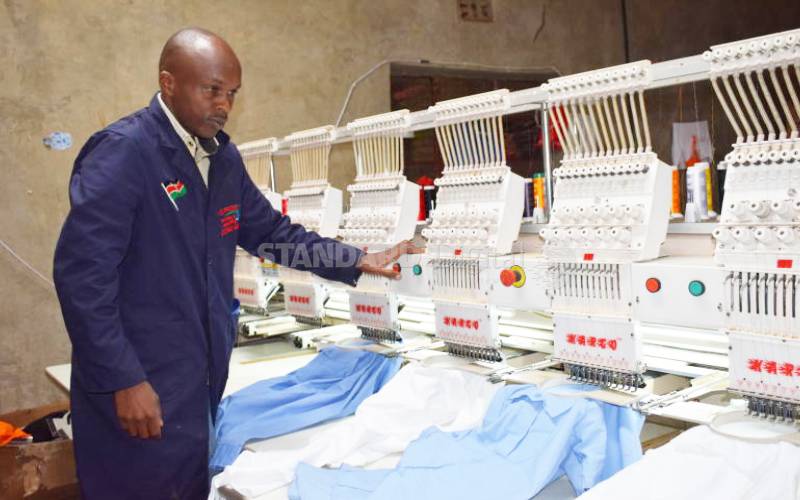×
The Standard e-Paper
Join Thousands Daily

Nicholas Mutwiri the CEO of Nexpress Embroidery and Screen-printing in Meru operating his embroidery machine on June 4, 2019. He uses the machine to adorn clothing with logos as well as to print on textiles. [Olivia Murithi, Standard]
Nicholas Mutwiri got into odd jobs out of desperation after three years of unemployment.